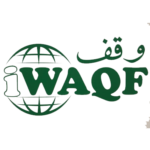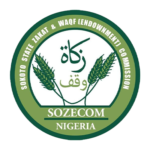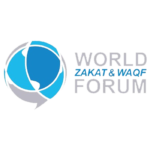Economic Development through Waqf
Author: Khalifa Saidi Khamisi
Introduction
1.1 Definition of Waqf and its Historical Significance
Waqf, rooted in Islamic tradition, refers to the act of endowing assets such as land, buildings, or funds for specific charitable purposes. With its origins deeply embedded in the teachings of Islam, Waqf represents a timeless commitment to philanthropy and community welfare. The term “Waqf” itself signifies the act of holding or stopping, reflecting the perpetual nature of the charitable endowment, designed to generate continuous benefits for society. This section provides a foundational understanding of Waqf and its historical roots, tracing its evolution from the early years of Islamic civilization.

1.2 Significance of Exploring Waqf’s Role in Economic Development
The exploration of Waqf’s role in economic development is of paramount significance in understanding the multifaceted impact of Islamic philanthropy on the economic fabric of societies, particularly in Africa. Beyond its religious and cultural dimensions, Waqf has historically played a pivotal role in fostering economic growth, job creation, poverty alleviation, and infrastructure development. By delving into the economic aspects of Waqf, we unravel its potential to serve as a catalyst for sustainable development, offering insights into how charitable initiatives contribute to broader economic well-being.
1.3 Overview of Key Themes Covered in the Article
This article navigates through the intricate intersections of Waqf and economic development in Africa. Key themes explored include the historical foundations of Waqf in economic development, its contributions to job creation, poverty alleviation, entrepreneurship, infrastructure development, agricultural progress, and the innovative financing mechanisms driving economic initiatives.

Additionally, the challenges inherent in implementing Waqf for economic projects, along with case studies illustrating successful ventures, will be examined. The article culminates in a forward-looking exploration of the future prospects and opportunities for Waqf to continue shaping economic landscapes in Africa. Through these themes, a comprehensive understanding of the economic dimensions of Waqf emerges, shedding light on its enduring legacy and potential for transformative impact.
2. Historical Foundations of Waqf in Economic Development
2.1 Early Instances of Waqf Contributing to Economic Development
The historical foundations of Waqf in economic development date back to the early years of Islamic civilization, where the practice emerged as a mechanism to address societal needs and promote communal well-being. From the outset, Waqf was employed to support economic initiatives that aimed at uplifting communities. Early instances of Waqf contributing to economic development included the endowment of agricultural land, trade routes, and financial resources to establish markets. These early economic foundations laid the groundwork for the enduring impact of Waqf on economic landscapes in Africa.

2.2 Economic Principles Embedded in Islamic Teachings
The economic principles embedded in Islamic teachings have played a pivotal role in shaping the trajectory of Waqf as a catalyst for economic development. Islamic economic principles emphasize social justice, equitable distribution of wealth, and the prohibition of usury (riba). These principles guide the utilization of Waqf funds to address economic disparities, promote fair trade, and ensure that the benefits of economic initiatives are shared across the community. The integration of these principles into Waqf reflects a holistic approach to economic development rooted in ethical considerations.
2.3 Notable Historical Examples of Waqf Fostering Economic Growth in Africa
Across the African continent, Waqf has left indelible imprints on economic development through diverse initiatives. In North Africa, historical examples include the establishment of marketplaces funded through Waqf, providing a hub for economic activities and trade. The famed Al-Madina Souq in Fez, Morocco, is one such example where the economic principles of Waqf facilitated commerce and contributed to the prosperity of the region.

In West Africa, the ancient city of Timbuktu witnessed the economic impact of Waqf through the establishment of Waqf-funded educational institutions that became centers of learning and economic exchange. These institutions not only served intellectual pursuits but also acted as economic hubs, attracting scholars, traders, and contributing to the economic vibrancy of the region.
Furthermore, in East Africa, Waqf-supported agricultural projects played a crucial role in economic sustainability. Endowed farms and agricultural lands ensured a stable source of income, food production, and employment opportunities for local communities, fostering economic self-sufficiency.
These historical examples underscore the versatility of Waqf in promoting economic development, from supporting trade and markets to nurturing education and agriculture. The economic foundations laid by Waqf in Africa have stood the test of time, leaving a legacy of resilience and community-driven prosperity. As we delve deeper into the economic dimensions of Waqf, the subsequent sections will explore how these historical foundations continue to shape contemporary initiatives and contribute to the economic advancement of Africa.
3. Waqf’s Contribution to Job Creation
Waqf, with its commitment to societal welfare and economic development, has been a pivotal force in generating employment opportunities within African communities. This section delves into the multifaceted ways in which Waqf contributes to job creation, fostering economic empowerment and sustainable livelihoods.
3.1 Overview of Waqf-Funded Projects that Promote Employment
Waqf-funded projects designed to promote employment encompass a diverse range of initiatives. These projects may include the establishment of vocational training centers, artisan workshops, and skill development programs aimed at equipping individuals with the expertise needed for various occupations. Additionally, Waqf may support businesses and enterprises that, in turn, generate employment opportunities for the local workforce. Understanding the role of Waqf in job creation requires a nuanced exploration of these varied projects and their impact on community livelihoods.

3.2 Examples of Initiatives Leading to Job Creation and Skill Development
Waqf’s contribution to job creation is exemplified through initiatives that prioritize skill development and vocational training. Historical examples include Waqf-endowed schools that specialize in practical skills, preparing individuals for careers in trades such as carpentry, weaving, and metalwork. These initiatives not only create employment opportunities but also contribute to the preservation of traditional craftsmanship, fostering cultural continuity.
In modern contexts, Waqf-supported entrepreneurship programs play a crucial role in job creation. By providing financial support, mentorship, and access to resources, these programs empower individuals to start and expand their businesses. This, in turn, stimulates economic growth and generates employment within local communities.
3.3 Impact on Reducing Unemployment and Fostering Economic Empowerment
The impact of Waqf on reducing unemployment extends beyond the creation of jobs. By addressing the root causes of unemployment through skill development and entrepreneurial support, Waqf contributes to sustainable economic empowerment. This approach aligns with the broader goals of social justice embedded in Islamic teachings, as Waqf becomes a vehicle for empowering individuals to actively participate in the economic life of their communities.
3.4 Case Study: The Waqf-Supported Artisan Training Center in Senegal
A noteworthy case study is the establishment of an artisan training center in Senegal, funded through Waqf. This center provides training in traditional crafts such as pottery, weaving, and woodworking. The initiative not only preserves cultural heritage but also creates employment opportunities for individuals who graduate from the program. The success of this project highlights the transformative potential of Waqf in addressing unemployment and nurturing skills that are vital for economic sustainability.
As we explore Waqf’s role in job creation, it becomes evident that its impact extends far beyond financial support—it is a catalyst for skill development, entrepreneurship, and the long-term economic empowerment of individuals and communities. The subsequent sections will further investigate Waqf’s contributions to poverty alleviation, entrepreneurship, and infrastructure development, painting a comprehensive picture of its economic significance in Africa.
4. Entrepreneurship and Small Business Development through Waqf
Entrepreneurship is a cornerstone of economic development, fostering innovation, job creation, and community resilience. Waqf, rooted in the principles of Islamic philanthropy, has played a significant role in supporting entrepreneurship and small business development across the African continent. In this section, we delve into the ways in which Waqf initiatives contribute to the growth of entrepreneurship and the development of small businesses.
4.1 Role of Waqf in Supporting Entrepreneurship
Waqf’s role in supporting entrepreneurship is multifaceted, encompassing financial support, mentorship, and the provision of resources to aspiring entrepreneurs. By earmarking funds for the establishment and growth of businesses, Waqf acts as a catalyst for economic development at the grassroots level. This proactive approach aligns with Islamic economic principles, emphasizing the ethical and sustainable growth of enterprises.
4.2 Establishment of Waqf-Funded Business Incubators
Waqf-funded business incubators are pivotal in providing a nurturing environment for startups and small businesses. These incubators offer a range of services, including shared office spaces, mentorship programs, and access to networking opportunities. Waqf’s financial backing ensures that entrepreneurs have the necessary support to transform innovative ideas into sustainable enterprises.
4.3 Examples of Successful Small Businesses Nurtured through Waqf
Historical and contemporary examples abound, illustrating the success of small businesses nurtured through Waqf. In medieval North Africa, Waqf-supported marketplaces became hubs of economic activity, fostering the growth of small traders and artisans. In the modern context, Waqf initiatives may provide microfinance support to individuals seeking to establish small businesses, such as local shops, agricultural ventures, or service-oriented enterprises.
4.4 Economic Principles Upheld by Waqf in Entrepreneurship Support
Waqf’s support for entrepreneurship aligns with Islamic economic principles, particularly the prohibition of usury (riba) and the emphasis on ethical business practices. The financial support provided by Waqf ensures that entrepreneurs can access capital without resorting to interest-based financing, fostering a business environment rooted in fairness and social responsibility.
4.5 Case Study: The Waqf-Backed Tech Incubator in Nigeria
A contemporary case study is the establishment of a technology-focused business incubator in Nigeria, supported by Waqf funds. This initiative provides a platform for aspiring tech entrepreneurs to develop and launch innovative solutions. By nurturing talent and providing the necessary resources, the Waqf-backed incubator contributes to the growth of the technology sector, job creation, and the overall economic development of the region.
As we explore Waqf’s impact on entrepreneurship and small business development, it becomes evident that its contributions extend beyond financial support. By fostering a conducive environment for business growth, Waqf emerges as a dynamic force in shaping sustainable and ethical economic ecosystems. The subsequent sections will continue to unravel the economic dimensions of Waqf, including its contributions to infrastructure development and agricultural progress in Africa.
5. Challenges in Implementing Waqf for Economic Development
While Waqf has been a historical driver of economic development, its implementation is not without challenges. This section explores the obstacles and complexities faced when utilizing Waqf for economic projects, shedding light on governance issues, transparency concerns, and legal intricacies.
5.1 Examination of Obstacles Faced in Using Waqf for Economic Projects
Implementing Waqf for economic development projects involves navigating various challenges that can impact the effectiveness and sustainability of initiatives. Challenges may arise at different stages, from the initial endowment and project planning to ongoing management and utilization of funds. Identifying and addressing these obstacles is crucial for optimizing the impact of Waqf in economic development.
5.2 Issues Related to Governance, Transparency, and Accountability
One of the primary challenges is related to governance structures overseeing Waqf projects. Family disputes over control, inadequate institutional frameworks, and challenges in decision-making processes can impede the efficient use of Waqf resources. Additionally, issues of transparency and accountability may arise, affecting public trust and the perceived legitimacy of Waqf initiatives. These challenges underscore the importance of robust governance mechanisms that align with both Islamic principles and modern standards of transparency
6. Future Prospects and Opportunities for Waqf in Economic Development
As we envision the future, the trajectory of Waqf in economic development holds immense promise and potential. This section explores the prospects and opportunities that lie ahead, presenting a forward-looking perspective on how Waqf can continue to shape economic landscapes in Africa.
6.1 Exploration of Potential Growth and Diversification of Waqf in Economic Projects
The future of Waqf in economic development entails exploring avenues for growth and diversification. This includes expanding the scope of Waqf-funded projects to address emerging economic challenges, such as climate change, digital transformation, and healthcare infrastructure. The adaptability of Waqf allows it to respond dynamically to evolving needs, positioning it as a resilient force in future economic initiatives.
6.2 Emerging Trends and Opportunities for Waqf
Identifying emerging trends presents opportunities for Waqf to stay relevant and impactful. Trends such as sustainable development, ethical investing, and technology-driven solutions offer avenues for Waqf to align with contemporary economic priorities. Exploring partnerships with socially responsible enterprises, integrating technology for transparent fund management, and addressing environmental sustainability are key areas that align with global trends.
6.3 Concluding Remarks on the Future Trajectory of Waqf in Economic Development
In conclusion, the future trajectory of Waqf in economic development hinges on a dynamic blend of tradition and innovation. Upholding the core principles of Islamic philanthropy, Waqf will likely continue to play a vital role in addressing socio-economic challenges in Africa. Collaborative efforts between religious authorities, legal experts, technological innovators, and community leaders will be crucial in steering the course of Waqf towards a sustainable and impactful future.
6.4 Case Study: Innovative Waqf-Backed Sustainable Development Project
A hypothetical case study illustrates the potential future of Waqf in economic development. A Waqf-backed sustainable development project focuses on renewable energy initiatives to address environmental concerns. By investing in solar power infrastructure, the project not only contributes to economic development but also aligns with global trends in sustainability. This visionary approach showcases the capacity of Waqf to pioneer innovative solutions for future challenges.
As the economic landscape evolves, Waqf stands at the intersection of tradition and progress, poised to continue its legacy of contributing to the well-being of communities. By embracing opportunities, navigating challenges, and staying true to its philanthropic roots, Waqf has the potential to leave an enduring mark on the economic development of Africa, fostering prosperity and resilience for generations to come.
Conclusion
The journey through the historical, present, and future dimensions of Waqf in economic development unveils a narrative of resilience, philanthropy, and community empowerment. From its historical foundations in supporting trade routes and markets to its contemporary role in fostering entrepreneurship and sustainable development, Waqf has been a dynamic force shaping the economic landscapes of Africa.
As we reflect on the challenges faced, from governance disputes to legal ambiguities, it becomes evident that the enduring spirit of Waqf persists, adapting to overcome obstacles and contribute to the greater good. The challenges encountered in implementing Waqf initiatives serve as opportunities for growth, refinement, and the evolution of governance structures to align with the principles of transparency and accountability.
Looking to the future, the prospects for Waqf in economic development are buoyed by its inherent flexibility and adaptability. Emerging trends, such as ethical investing, sustainable development, and technological innovations, offer exciting opportunities for Waqf to address contemporary challenges and make a lasting impact.
In the hypothetical scenario of a Waqf-backed sustainable development project, we catch a glimpse of the innovative and visionary potential of Waqf. By investing in renewable energy infrastructure, Waqf not only contributes to economic development but also aligns with global efforts toward a sustainable future.
In conclusion, Waqf in Africa is not merely a historical relic but a living tradition, continuously evolving to meet the changing needs of communities. Its potential to uplift through job creation, entrepreneurship support, and infrastructure development is a testament to the enduring relevance of Islamic philanthropy in driving economic prosperity.
As we embrace the future, let us navigate the delicate balance between tradition and innovation, fostering collaborations among religious authorities, legal experts, technological innovators, and community leaders. Through these collective efforts, Waqf is poised to remain a beacon of hope, nurturing prosperity and resilience across the diverse and dynamic landscapes of Africa.

Awqaf Africa is a prominent organization dedicated to empowering communities across the African continent. Established to foster sustainable development and social welfare, Awqaf Africa focuses on harnessing the potential of endowments (awqaf) to drive positive change. Through strategic initiatives, partnerships, and impactful projects, Awqaf Africa endeavors to address socio-economic challenges and promote prosperity within African societies.
- Choose your favourite cause
- Register to our website !
- Donate the amount you like
- Stay tuned about cause






verygood